Letter formation Worksheets for Ages 4-5
10 filtered results
-
From - To
Explore our engaging Letter Formation Worksheets designed specifically for ages 4-5! These printable resources help young learners develop essential handwriting skills while making learning fun. Each worksheet features vibrant images and interactive activities that promote letter recognition and proper letter formation techniques. Children will practice both uppercase and lowercase letters through tracing, coloring, and guided writing exercises. Our worksheets are perfect for at-home learning, preschool, or kindergarten classrooms. Help your child build confidence in their writing abilities and lay a strong foundation for future literacy success. Visit our site to download your free letter formation worksheets today!


Letter A Tracing Page


Letter P Tracing Page
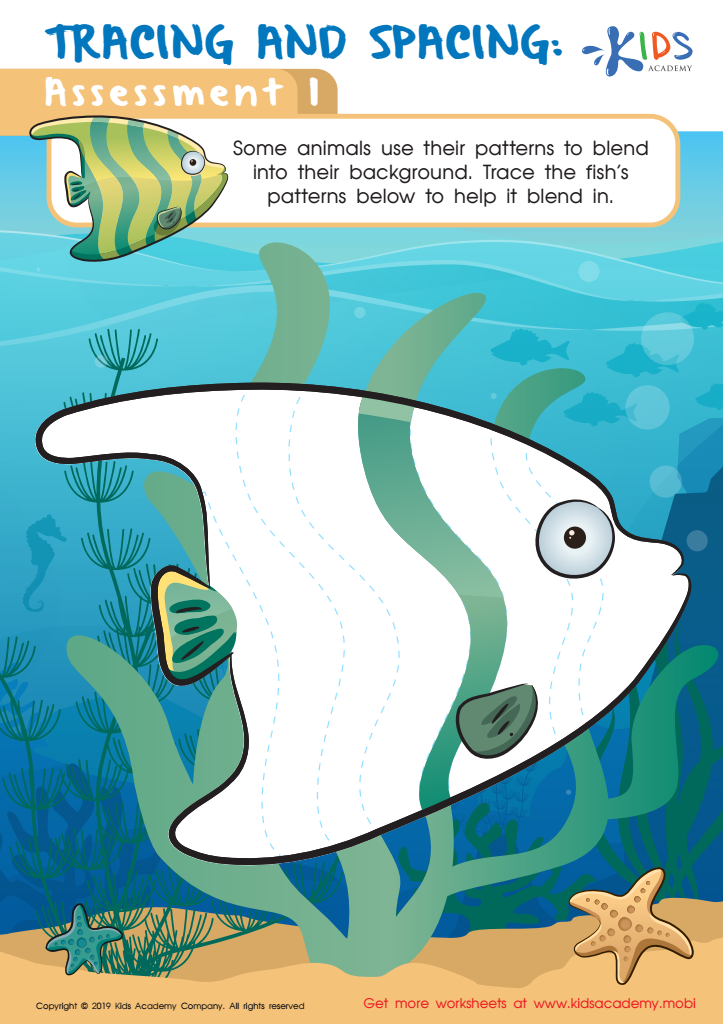

Tracing and Spacing: Assessment 1 Worksheet
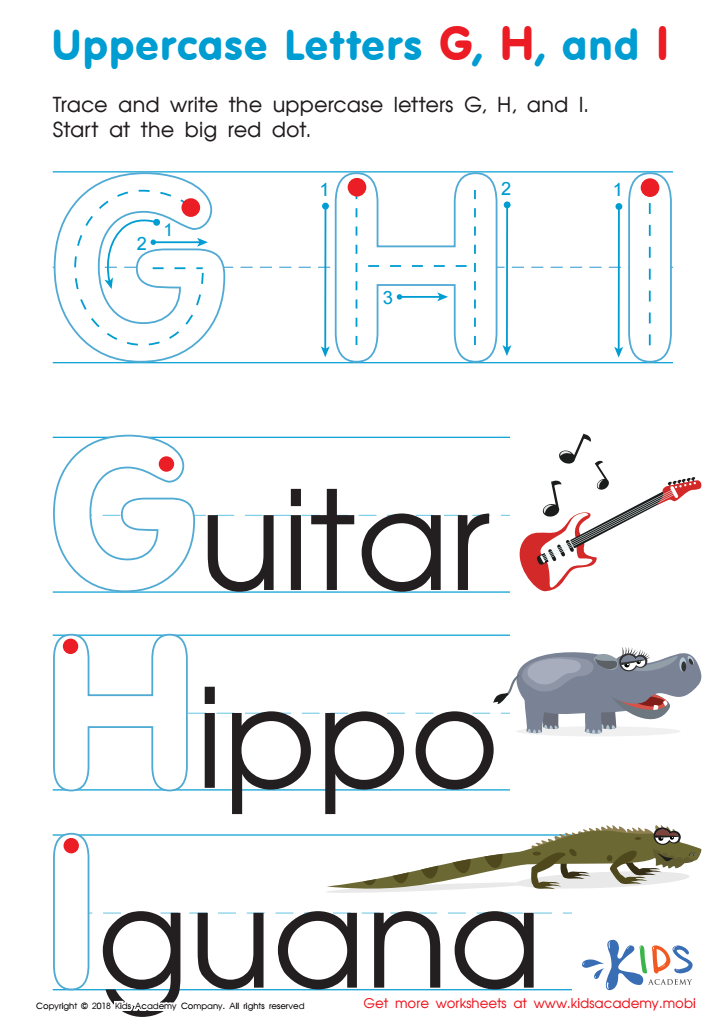

Uppercase Letters G, H, and I Worksheet
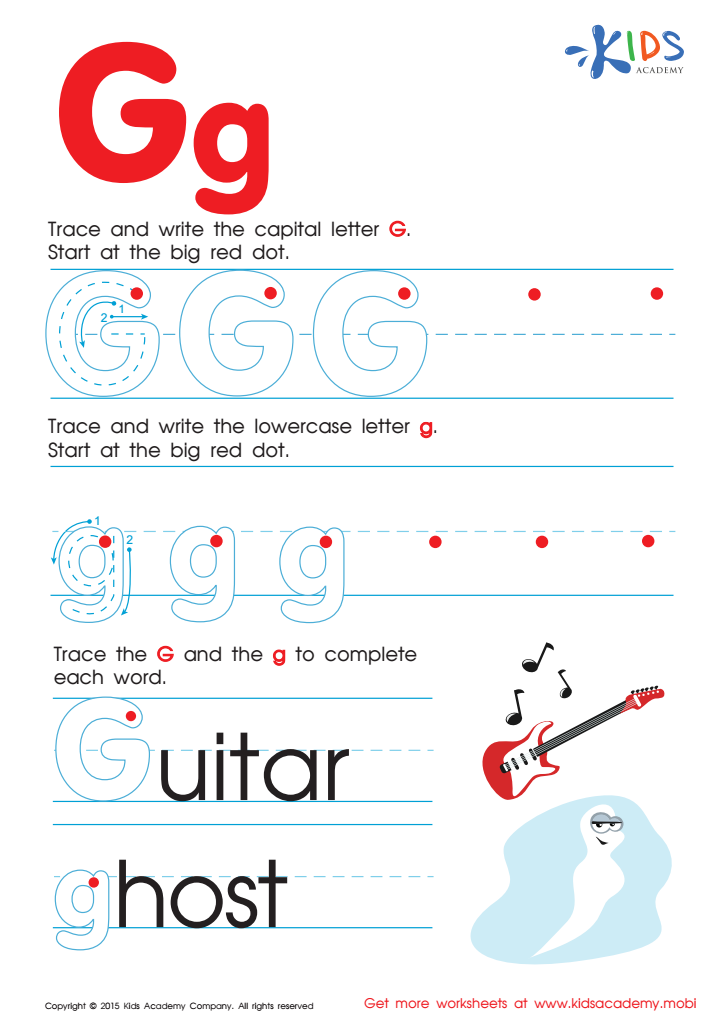

Letter G Tracing Page
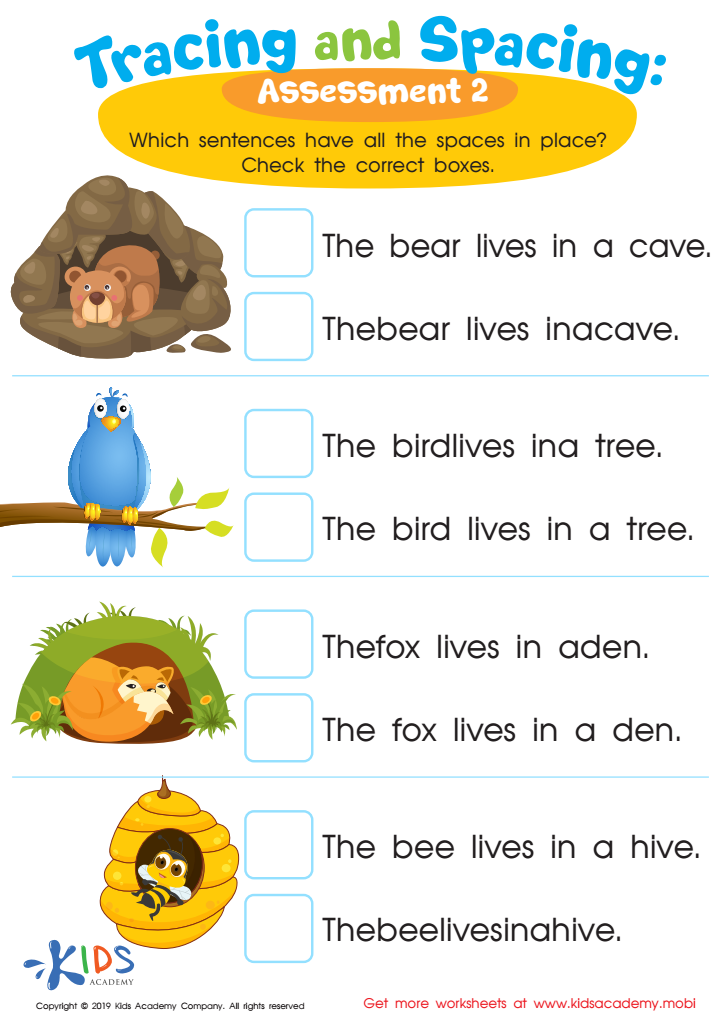

Tracing and Spacing: Assessment 2 Worksheet
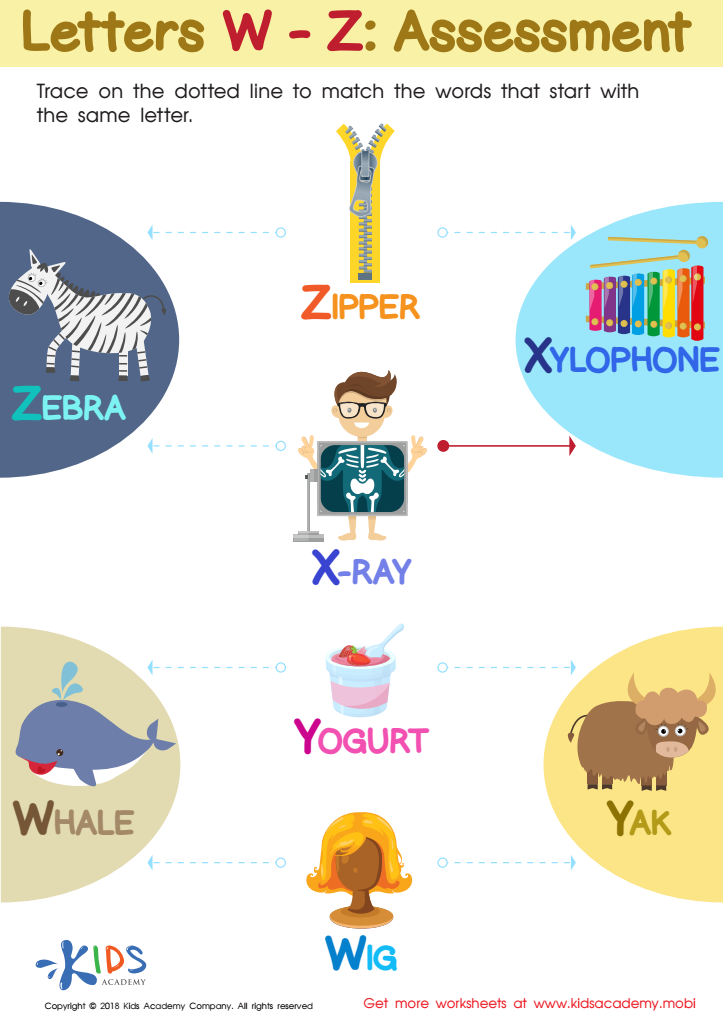

Letters W–Z Tracing Worksheet
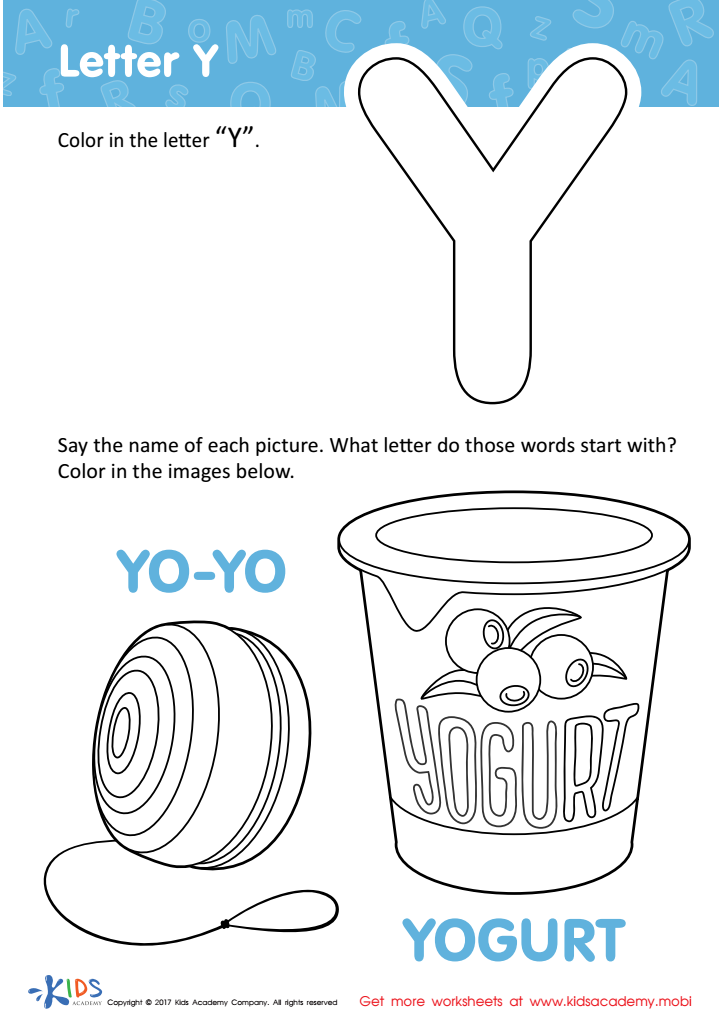

Letter Y Coloring Sheet
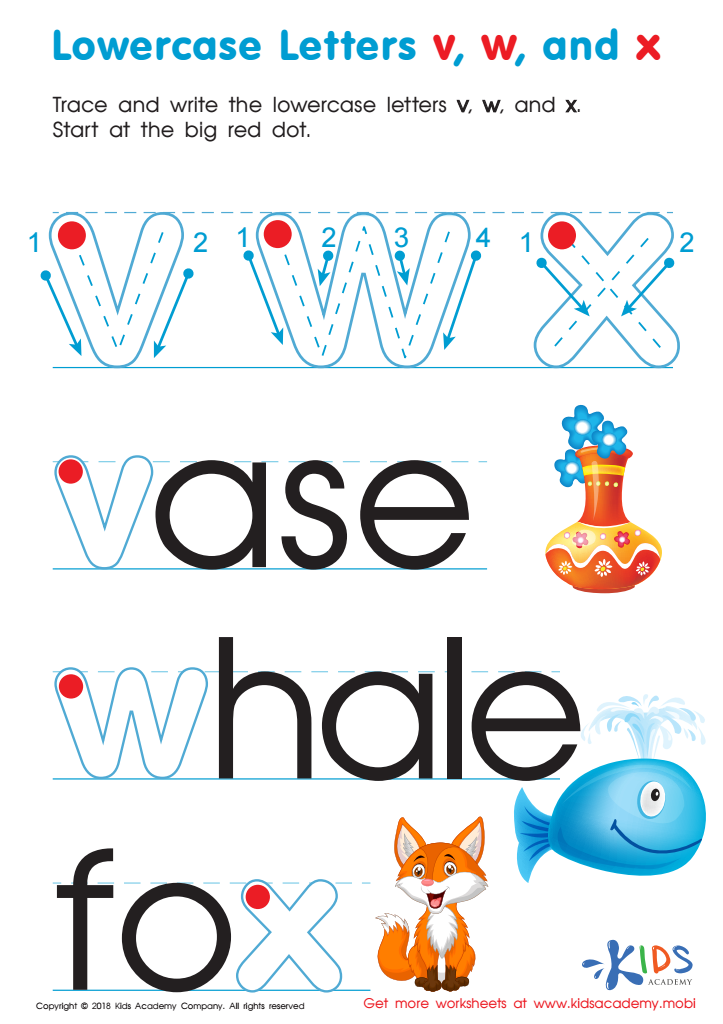

Lowercase Letters v w x Worksheet
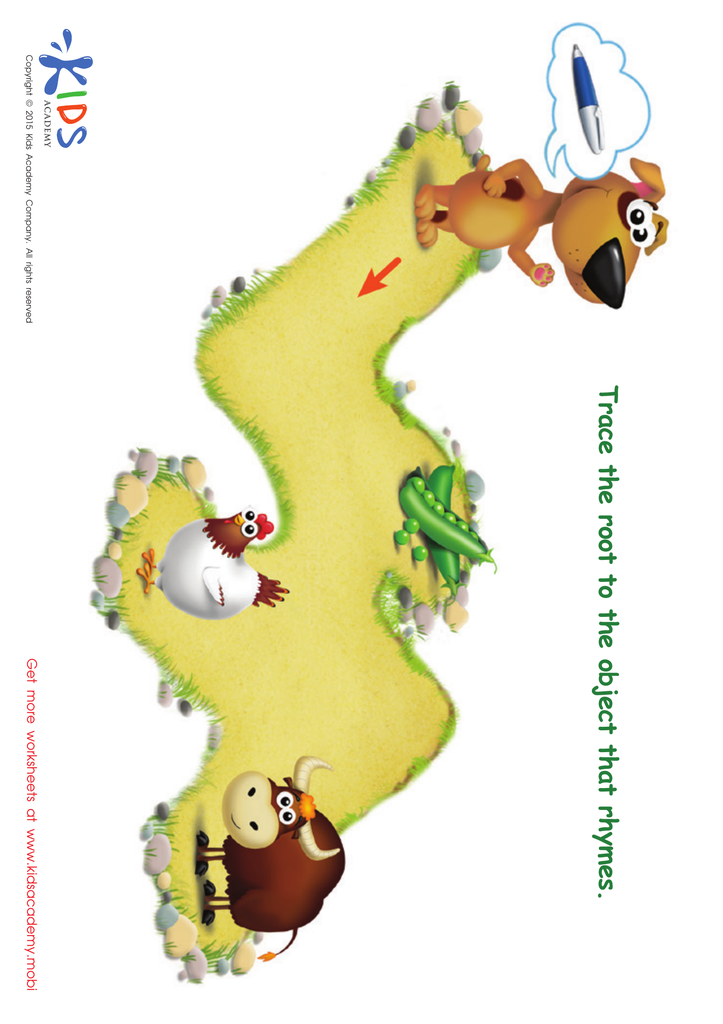

Pen Rhyming Words Worksheet
Letter formation is crucial for children aged 4-5 as it lays the foundation for effective writing and overall literacy development. During this stage, children are developing fine motor skills and hand-eye coordination, which are essential for their ability to write legibly. Proper letter formation helps them create clear and recognizable letters, fostering confidence as they express themselves on paper.
In addition, mastering letter formation can directly impact a child's reading development. Well-formed letters support letter recognition, enabling children to connect written text with spoken language. This understanding helps them become proficient readers more quickly.
Moreover, teaching correct letter formation promotes good habits early on. Children who develop an improper grip or form may struggle with writing as they progress to more complex tasks, leading to frustration and a negative attitude toward writing and learning.
Finally, early intervention in letter formation can aid in identifying and addressing any potential learning disabilities or difficulties. Teachers and parents should actively engage in guiding children through the processes of writing and letter formation, nurturing their academic growth and self-esteem. By fostering these foundational skills, adults can support a child's lifelong learning journey.

 Assign to My Students
Assign to My Students






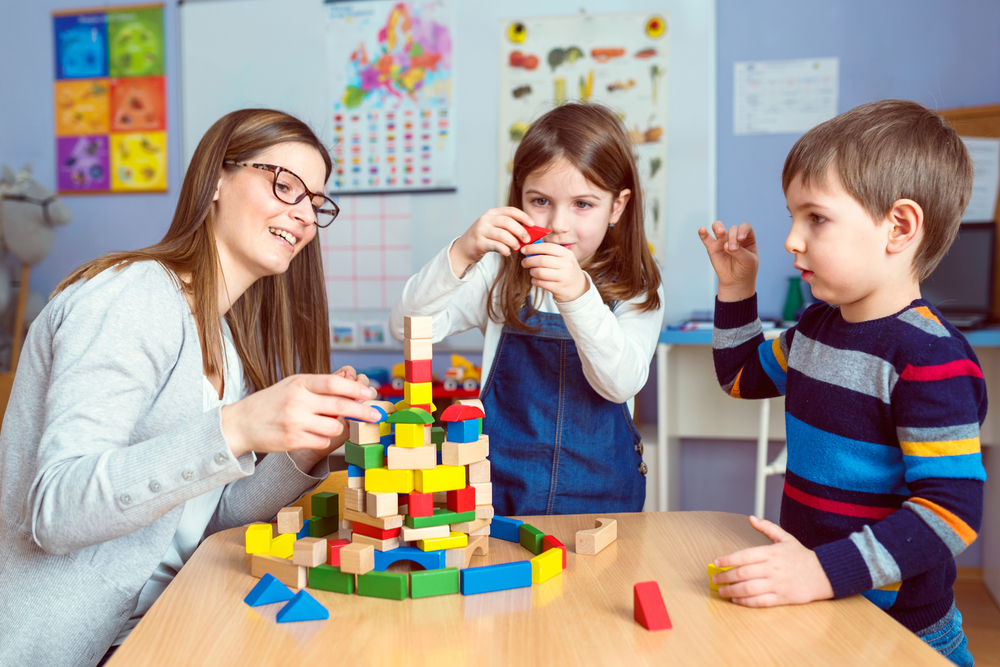
.jpg)












